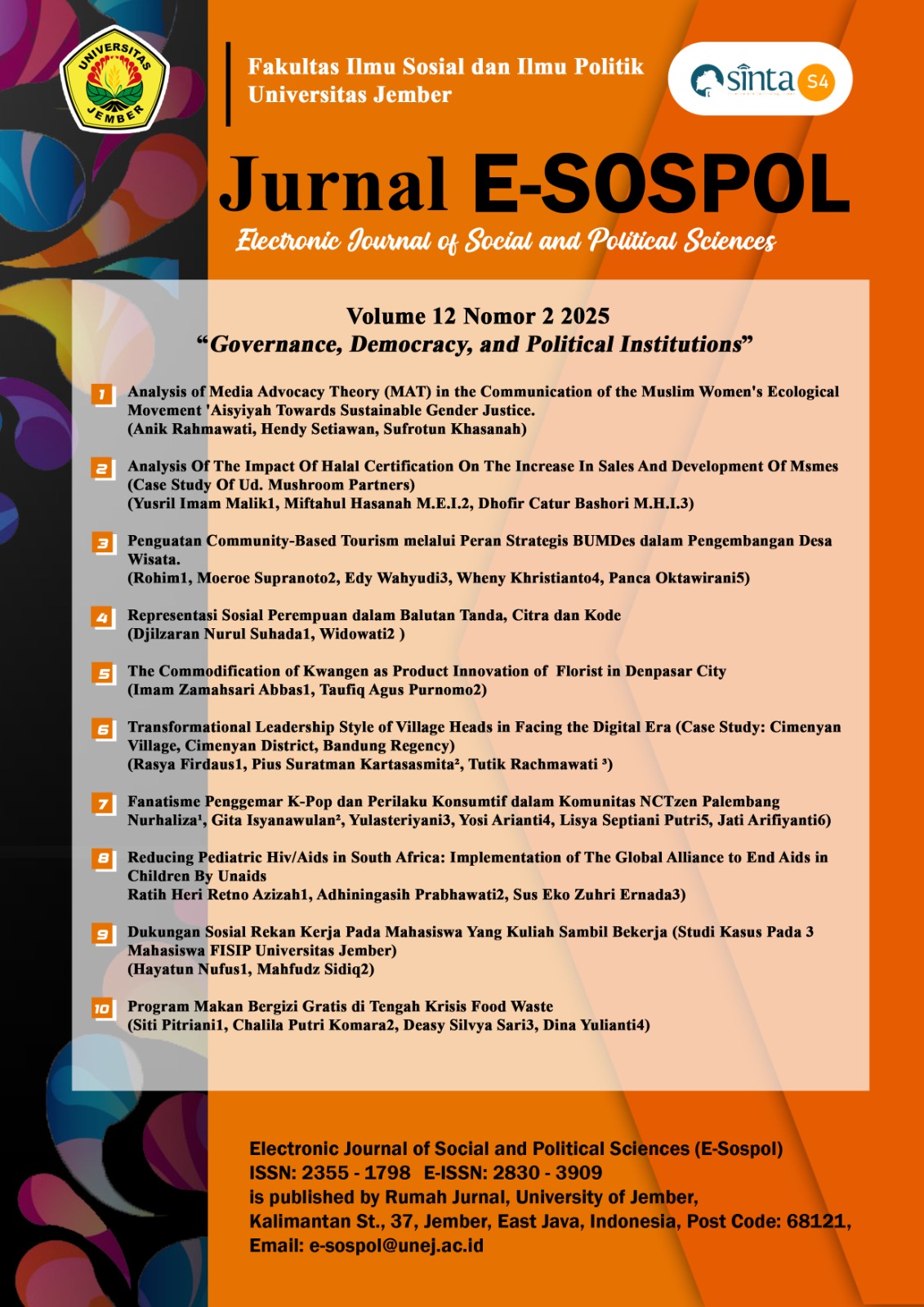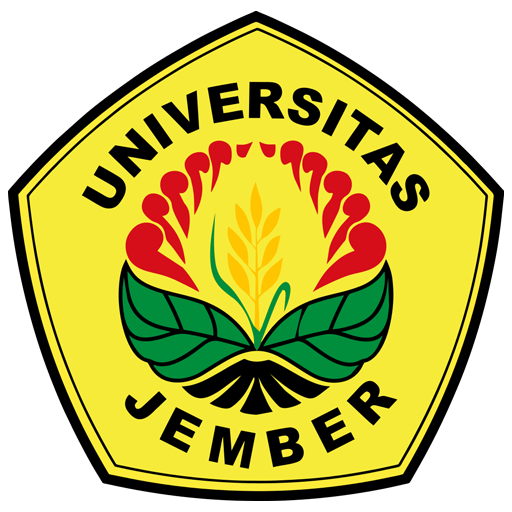Dynamics of Governance in Urban Indigenous Cultural Villages: A Case Study of Pampang, East Kalimantan, Indonesia
DOI:
https://doi.org/10.19184/e-sospol.v12i2.53877Abstract
This study examines the dynamics of governance in urban indigenous cultural villages, focusing on the Pampang Cultural Tourism Village in East Kalimantan, Indonesia. Urban indigenous communities face unique challenges in maintaining local wisdom while adapting to modernization and development policies. Previous studies have primarily explored indigenous governance in rural areas, while research on urban-based indigenous communities remains limited. This research gap highlights the importance of gaining new insights into how governance systems function in cultural villages located near urban centers, where tourism activities and globalization pressures are highly influential. The study employs a qualitative descriptive approach through interviews, observations, and document analysis. Findings reveal that governance in the Pampang Cultural Tourism Village represents a hybrid system, where customary practices coexist with government regulations and tourism demands. Such governance arrangements have contributed to cultural preservation and created economic opportunities for the community, but they have also triggered tensions regarding interest representation, resource distribution, and the risk of cultural commodification. The study concludes that strengthening inclusive governance mechanisms is crucial for the sustainability of urban indigenous villages. This research contributes to the broader literature on indigenous governance by introducing perspectives from urban contexts, which are often overlooked. Policy recommendations include the need for state recognition of local wisdom, greater community participation, and balancing cultural preservation with economic development
Downloads
Downloads
Published
Issue
Section
License
Penulis yang mengusulkan naskahnya untuk dapat diproses penerbitannya pada e-SOSPOL dianggap telah menyetujui beberapa hal sebagai berikut:
1. Penulis tidak dapat menarik naskah yang telah usulkan untuk diproses hingga mendapat jawaban dari Ketua Dewan Penyunting atas status naskah artikel ilmiahnya (diterima atau ditolak untuk diterbitkan).
2. Penerbit tidak bertanggung jawab terhadap kasus plagiasi atas artikel yang terbit pada e-SOSPOL
3. Penerbit tidak bertanggung jawab atas data dan isi dari artikel yang diterbitkan pada e-SOSPOL, dan sepenuhnya merupakan tanggung jawab penulis.







